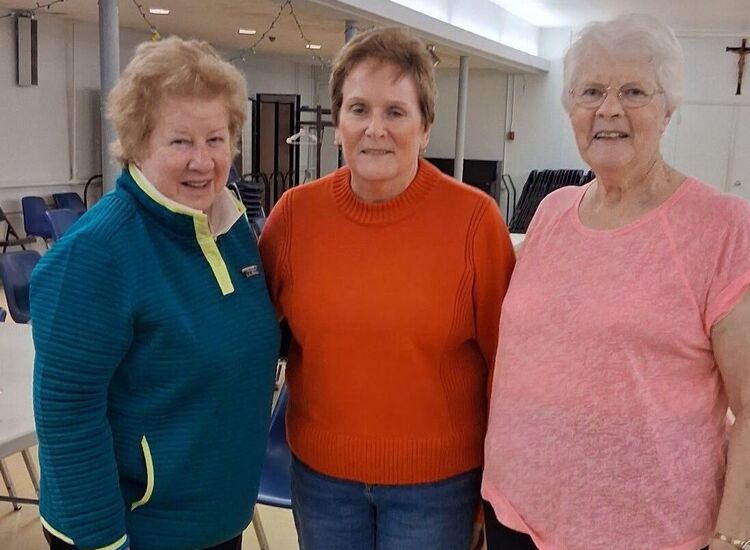Eugene O'Neill.
LIBRARY OF CONGRESS
[First published on October 12, 2011. See postscript
below. For a recent Q & A with Barbara Gelb, go here.]
By Peter McDermott
Arthur and Barbara Gelb have liked all of the picks so far for the Eugene O’Neill Lifetime Achievement Award.
“Charlotte Moore is a friend,” said Barbara Gelb of the artistic director of the Irish Repertory Theatre, an institution that will be honored on next Monday evening at the Manhattan Club, Rosie O’Grady’s, on Seventh Avenue.
Last year, the O’Neill biographers were at the same venue to see another friend, actor Brian Dennehy, receive the award given annually by the Irish American Writers & Artists.
They hadn’t known the inaugural recipient, though, until he walked up to introduce himself at the ceremony two years ago. The rapport with novelist William Kennedy was instantaneous and they have been in regular contact since.
Before 2009, any mention in close proximity of “lifetime achievement” and “Eugene O’Neill” would quite likely have been in the context of the Gelbs themselves.
Barbara and Arthur Gelb pictured at their apartment in 2011 in front of a caricature of Eugene O’Neill by
Al Hirschfeld. Their book "By Women Possessed" was published on Nov. 1, 2016. PHOTO: PETER MCDERMOTT
They were commissioned in 1956 to write the first full-scale biography of the only New York-born winner of the Nobel Prize for Literature. It was published to acclaim in 1962 and remained the standard until they decided to write a new biography, which was published in 2000. And they’ve been immersed, now, for the past several years in writing a new work about O’Neill.
They’d done one book together, about Bellevue Hospital, before taking on the biography, three years after its subject’s death at the age of 65. While Barbara Gelb could put her freelance career on hold for the new arduous undertaking, her husband, the Bronx-born son of Jewish immigrant parents, was not allowed to take time off from the New York Times. Nonetheless, they managed during those years to juggle their multiple roles, including as mother and father to two children.
They crisscrossed the country speaking to everybody they could find who knew O’Neill. In the summer of 1957, for example, they traveled to New London, Conn., where he’d spent childhood summers.
In his 2003 memoir “City Room,” Arthur Gelb writes: “There, while my parents took our sons for daily outings to the beach bordering on Long Island Sound, we sought out locals who remembered the O’Neills. One day, Barbara and I visited O’Neill’s 90-year-old cousin, Lillian Brennan, who was institutionalized with senile dementia. She was completely out of touch with the present, but clearly recalled events from the late 1890s and early 1900s, giving us a unique picture of O’Neill’s mother as a young woman.”
Carlotta Monterey O’Neill, his wife for the last 23 years of his life, was famously reticent, but she eventually agreed to talk. She insisted that only Arthur Gelb could interview her (thus confirming the stories that she was less comfortable with women than men).
O’Neill’s mother and widow – together with others who influenced his female characters – will feature prominently in “By Women Possessed,” which is due for publication next year.
“It’s two-thirds finished,” said Arthur Gelb, when interviewed at the couple’s Upper West Side apartment. “Our publishers are very excited about it.
“We never could have written the book we’re writing now without being totally immersed in O’Neill’s world and in his creativity and in his mind, because we know him so well at this point,” he added. “It’s an arrogant thing to say, but I think that we know him much better than he knew himself.
“You have to know a lot about marriage to write this book, we believe,” Gelb said. “All marriages have their ups and downs, no matter how smooth they seem on the outside.
“Strindberg is right,” he said, quoting a playwright who influenced O’Neill. “It is called love-hatred…” His wife finished the line from the gloomy Swede: “And it hails from the pit.”
Both have been devotees of O’Neill since their teens. Barbara Gelb’s stepfather, the noted playwright S. N. Behrman, arranged for her to meet the great man at a rehearsal. “I shook his hand,” she said. “He was quite frail already at that time.”
“The first gift that Barbara gave me was ‘The Collected Plays of Eugene O’Neill,’” her husband recalled.
Barbara Stone, who later wrote two books on the NYPD, was an 18-year-old Times copy girl when she met Gelb, a 21-year-old news clerk. They married the next year.
On Oct. 9, 1946, “The Iceman Cometh” premiered at the Martin Beck Theater. It ran for five hours, with another hour for dinner. “We grabbed a cab and went up to the Hampshire House on Central Park South.
“It was very romantic. We spent our combined week’s salaries on dinner,” he said. “Then we rushed back.”
O’Neill was disappointed with that production. “He would have loved to have seen Jason Robards in the first revival in 1956,” Barbara Gelb said: “It was just brilliant.”
The year of Robards’s triumph, Arthur Gelb was preparing for a stint as a foreign correspondent for the Times.
“That was the most important job to have as a reporter in those days,” said the man who retired as managing editor in 1990 and after that headed the Times Company Foundation.
But Brooks Atkinson, the great drama critic, admired his freelance work on theater for the weekend section and asked him to become his assistant
“You can go abroad later on,” said Atkinson, who himself had served as a foreign correspondent.
He had been a champion of O’Neill from early on, but in his 60s turned down an approach to write a major biography. He recommended the Gelbs instead.
Now, they are working with the same drive and intensity that they did a half-century ago: “We work at dawn, before dawn sometimes. Barbara was at her computer today at 4 o’clock.”
“The problem is we have to work around the noise,” she said, referring to renovations going on in adjoining apartments.
Their own, which they’ve rented since 1967, is elegant and spacious. They work in studies that had been their sons’ bedrooms, keeping in contact via email. “Or we shout,” Arthur Gelb said.
“We turn down speeches all the time about O’Neill,” he said. “We’d never be able to finish our book.”
They will be at the Irish American Writers & Artists event on Monday evening. It’s not the sort of gathering O’Neill would have graced. Nor was he a joiner. Yet, Arthur Gelb pointed out, he did accept an invitation from W.B. Yeats in 1932 to become a member of the Irish Academy. “Anything with Yeats, Shaw, A.E., O’Casey, Flaherty, Robinson in it is good enough for me,” he said.
The couple took time out during the summer to lead a bus tour of O’Neill’s Manhattan for delegates to an international academic conference on the playwright. “They came from China, from Russia, various places,” Arthur Gelb said.
“But when we started he was not held in the kind of awe he’s held in today,” he said.
The playwrights who came after him understood his achievement. “He revolutionized the theater, made it into a literary theater and a tragic theater,” Gelb said. “Arthur Miller said he was ‘the great wrestler fighting God to a standstill.’ Tennessee Williams said he ‘gave birth to the great American theater and died for it.’
“Tony Kushner says now, as our foremost young playwright, that O’Neill is America’s Shakespeare.”
Barbara Gelb believes that the Nobel laureate she met fleetingly as an awestruck teenager has never been so popular.
“He’s flourishing,” she said.
Postscript: Several updates were to follow from Arthur Gelb about “our monster of a book, which takes O'Neill all over the place including a thorough exploration of his genius brain and unreliable heart.” At one point they were “working around the clock” and at another with “barely a pause.” At another, there was a delay “because of wonderful new material we luckily discovered before the book went to press.”
After the deaths in the same week of Gelb’s brother and sister-in-law, their editor, who he reported loved the book, “advised us to take it easy for several weeks and take some deep breaths.” In September 2013, when Gelb recalled for the Echo his interview with Brendan Behan in 1960, he said they were just “beginning to unwind” when they agreed with the suggestion for a prologue about Carlotta O’Neill “in mourning and how mourning becomes her.”
On Wednesday, May 21, 2014, a front-page Times obituary began: “Arthur Gelb, who by sheer force of personality was a dominant figure at the New York Times for decades, lifting its metropolitan and arts coverage to new heights and helping to shape the paper in its modern era, died on Tuesday at his home in Manhattan. He was 90.”









